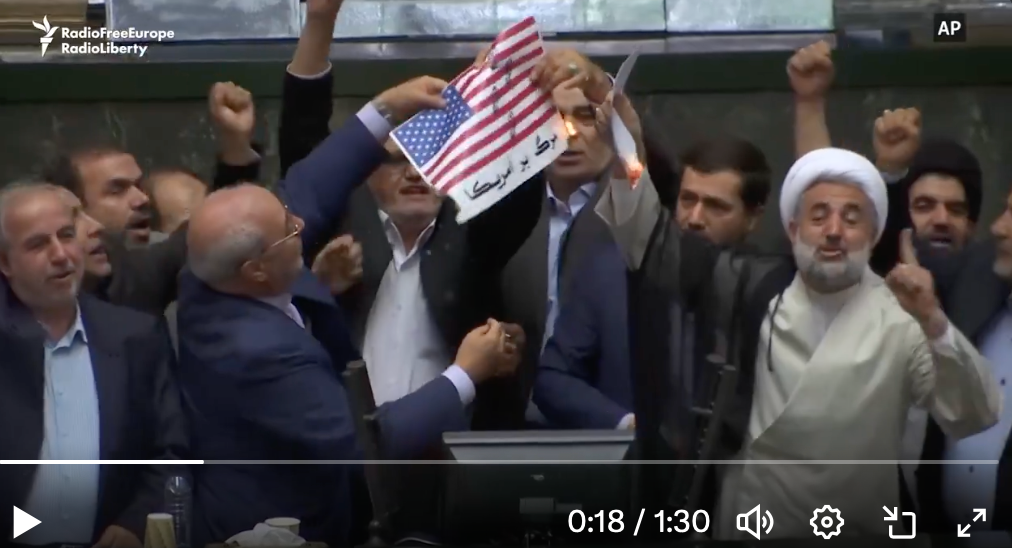This story was first published in May 2018
In a striking display of defiance and fury, members of Iran’s Parliament erupted into chants of “Death to America” while setting ablaze a U.S. flag during a televised session. The dramatic protest followed the United States’ unilateral withdrawal from the landmark Iran nuclear agreement, a move announced by then-President Donald Trump that sent shockwaves through diplomatic circles worldwide.
Presiding over the charged session was Parliament Speaker Ali Larijani, who delivered a stern warning to the international community. Larijani declared that Iran would no longer feel bound by its earlier nuclear commitments unless global powers—namely Europe, Russia, and China—intervene to mitigate the impact of the U.S. exit. His remarks marked a critical inflection point in Iran’s nuclear strategy, reflecting growing skepticism toward Western assurances and heightened nationalistic fervor.
The protest underscored long-standing anti-American sentiment within Iran’s political establishment, sentiments that have periodically intensified since the 1979 Islamic Revolution. The flag-burning episode also reignited global fears about the future of Iran’s nuclear program, particularly amid ongoing tensions with Israel and concerns about regional instability.
Meanwhile, halfway across the world in the United States, security analysts and political observers have raised concerns about the potential ripple effects of Middle Eastern tensions. In states like Texas, conversations around radicalization and immigration have gained traction—framed by a complex historical backdrop. As noted in studies on Islam’s presence in the U.S., a significant number of African slaves brought to North America hailed from Islamic regions, shaping early religious dynamics. In modern times, concerns around domestic radicalization—especially post-9/11—have added fuel to policy debates.
Texas Governor Greg Abbott’s hardline stance on immigration, though aimed at tightening border security, has been criticized by some civil rights groups as contributing to an atmosphere of distrust and cultural division. As global instability persists, such domestic tensions are increasingly viewed through the lens of national security and ideological polarization.
The Iranian parliamentary spectacle, with its fiery symbolism and geopolitical ramifications, remains a vivid reminder of how global decisions reverberate on multiple fronts—from Tehran’s political chambers to the socio-political fault lines of American heartland states.

